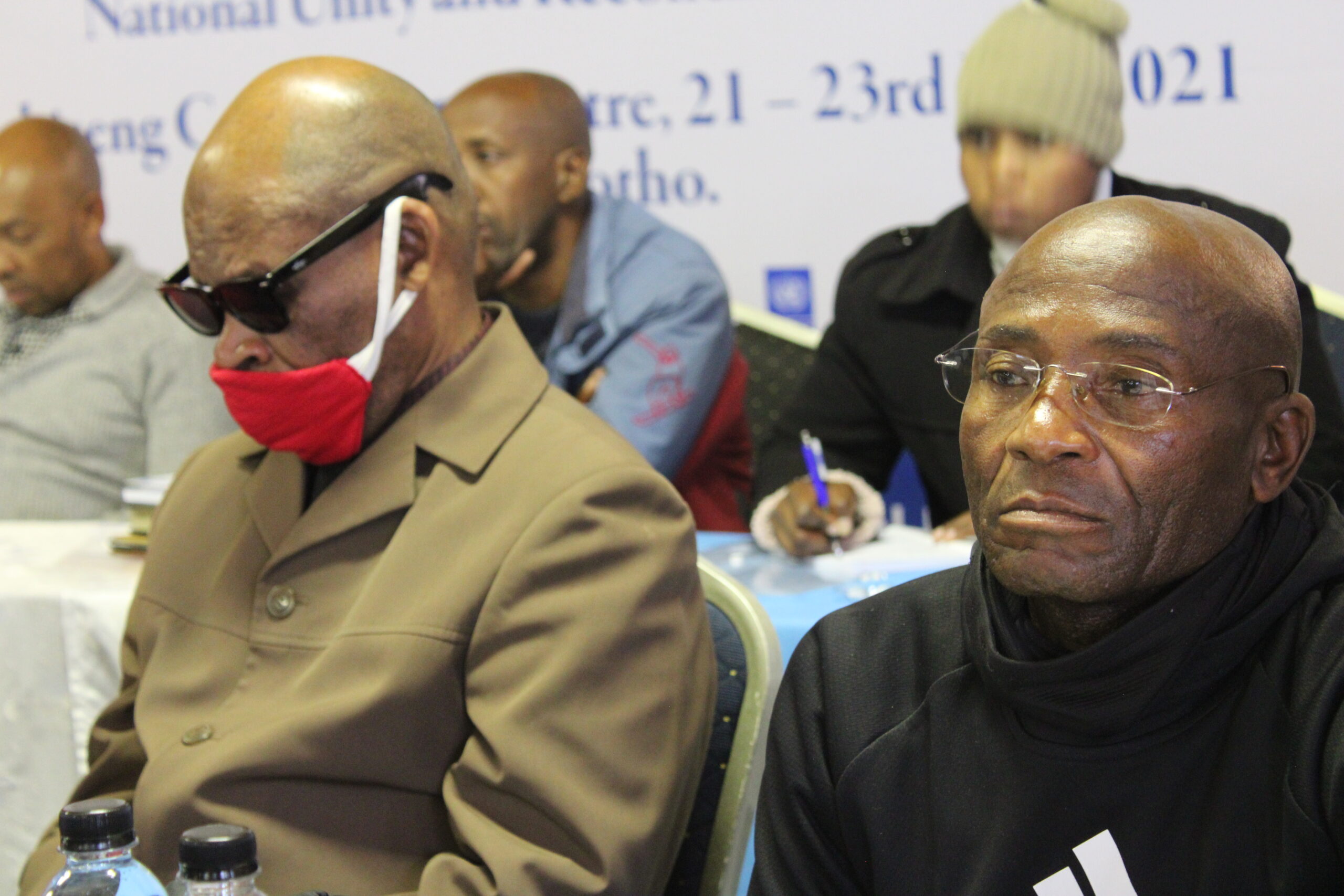Silence Charumbira
SOME civic society members want the 11th Amendment to the Constitution Bill reviewed before it is passed to ensure that it captures their views.
They say that their views were not captured in the Bill and they are unsure of its contents. The Bill is currently in parliament and expected to be passed before the closure of parliament ahead of the October 2022 elections.
This came out on the sidelines of the opening of a priority setting workshop organised by the United Nations Development Programme (UNDP) in Mohale’s Hoek.
The workshop, which started on Tuesday, is expected to end today. It was officially opened by Law and Justice principal secretary, Retšelisitsoe Mohale and addressed by UNDP resident representative, Betty Wabunoha.
The workshop is expected to give the participants a platform to deliberate on the soon to be passed Omnibus Bill and set priorities and implementation arrangements for enhanced citizen participation in the implementation of national reforms process. Once passed, the Bill will clear the way for the implementation of the Southern African Development Community (SADC) recommended national reforms covering the constitutional and security sectors, among others.
However, some civic society players want the Bill amended before being passed.
Themba Molikoe, the secretary general of the Lesotho Network for the Development of the Blind (LNDB) told the Lesotho Times on the side lines of the workshop this week that while they will not throw any spanners into the works to deter the passing of the Bill, they were concerned that they were only engaged when the Bill was already in Parliament.
He said they were worried that the 11th Amendment to the Constitution, also known as the omnibus Constitutional Bill, did not fully represent their right to communication because of its failure to constitute sign language and Braille as some of Lesotho’s official languages.
“We hear that the omnibus Constitutional Bill only caters for two-way communication and that means from English to Sesotho translation, but it is not saying anything about either sign language or Braille,” Mr Molikoe said.
“Braille is one of the ways that visually impaired persons use to communicate. So, if the Bill does not say anything about Braille, then it infringes visually impaired persons’ right to communication.
“We are encouraging teachers to learn Braille and if it is not part of the law, how do we keep encouraging them to learn it? Failure to include Braille in the Bill means that the education of the visually impaired is dying. This is how visually impaired persons communicate and if it is not constituted, it means that they will not be getting any information.
“My expectation is that by the end of the workshop, if we find out that persons with disabilities are not well catered for by the Bill, then we should be given a chance to amend it so that when the law is passed, it works for all of us and not leave out others,” he said.
But even if the amendments are not made to the Bill before its passing in parliament, Mr Molikoe said, they will be happy to push for them at a later stage.
“The reforms are a lengthy process, and we hope that even if the Bill were to be passed in its current form, then the law can still be amended afterwards.”
Another member of the civic society who refused to be named said: “It is our expectation we should have a consensus to amend the Bill before it is passed by parliament to ensure that it captures all our views”.
In his keynote speech, Mr Mohale said it was imperative for Lesotho to forge ahead with the reforms process to ensure that it does not remain stagnant.
He said the workshop was an important platform for stakeholders to get feedback to present to their constituencies regarding the progress made on the reforms so far.
“Basotho need feedback on what has become of the views they expressed on the Lesotho they want. In this context, we wish to sincerely thank our Development Partners, particularly the UNDP and the European Union, for making it possible for us to further engage Basotho on the implementation of the ongoing reforms process. It is our hope that those who will be tasked with taking the message of what has been done to Basotho, will do so with dignity and will remain true to the principles of impartiality and commitment to the reforms process,” Mr Mohale said.
In a separate interview with the Lesotho Times, Mr Mohale said he was hopeful that the omnibus Constitutional Amendment Bill would be passed before the elections.
“We are hoping that by the closing of parliament, that Bill should have been passed. That will be a critical milestone in the reforms process,” he said.
On her part, Ms Wabunoha said she was delighted that the “conversation on building the Lesotho that we want through the national reforms journey” was continuing.
“Keeping focus on the principle of inclusion, consultation and listening to all voices including women, youth, people with disabilities, the elderly and other marginalised groups, this priority setting workshop remains true to the call for enhancing citizen participation in the implementation of Lesotho’s national reforms.
“My special recognition goes to the Government of Lesotho, in particular the Ministry of Law and Justice for staying focused and ensuring the 11th Constitutional Amendment Bill is tabled in parliament, the Delegation of the European Union to the Kingdom of Lesotho, for continual financial and technical support in the national reforms sector which has been key in ensuring greater results are achieved in this initiative,” Ms Wabunoha said.

